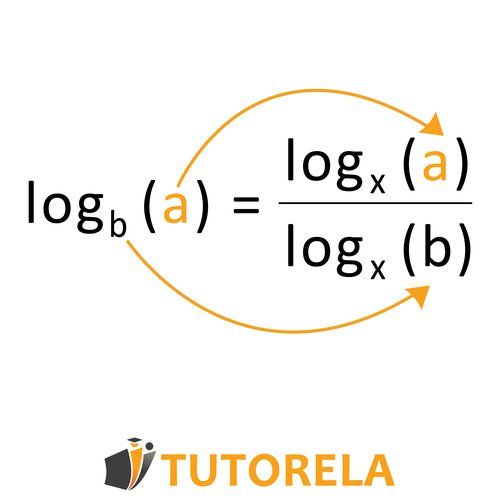The definition of the logarithm:
Change of Base Formula Practice Problems & Solutions
Master logarithm base conversion with step-by-step practice problems. Learn the change of base formula, solve equations with different bases, and build confidence.
- Convert logarithms from one base to another using the change of base formula
- Solve equations with logarithms having different bases like log₆x + log₃₆x = 3
- Apply base conversion to simplify complex logarithmic expressions
- Practice converting to common bases like base 2, 10, or e
- Master substitution techniques for solving multi-base logarithmic equations
- Build confidence with step-by-step solutions and detailed explanations
Understanding Change-of-Base Formula for Logarithms
Change of Logarithm Base
Reminder - Logarithms
Where:
is the base of the log
is what appears inside the log - can also appear inside of parentheses
is the exponent to which we raise the base of the log in order to obtain the number that appears inside of the log.
How to change the base of a logarithm?
According to the following rule:

In the numerator there will be a log with the base we want to change to, as well as what appears inside of the original log.
In the denominator there will be a log with the base we want to change to, and the content will be the base of the original log.
Practice Change-of-Base Formula for Logarithms
What is the domain of X so that the following is satisfied:
\( \frac{\log_{\frac{1}{8}}2x}{\log_{\frac{1}{8}}4}<\log_4(5x-2) \)
Examples with solutions for Change-of-Base Formula for Logarithms
To solve this problem, let's simplify the given expression .
- Step 1: Recognize that both the numerator and denominator have the same base, 8.
- Step 2: The division property of logarithms states that .
- Step 3: Apply the division rule to the given expression: .
Thus, after simplifying, we see that .
Hence, the correct answer is , which corresponds to the choice 1.
Answer:
To solve this problem, we'll simplify the given expression using logarithmic rules:
Step 1: Apply the power rule of logarithms:
The numerator can be rewritten using the power rule: .
Step 2: Substitute and simplify the fraction:
Substitute the expression from Step 1 into the original problem:
.
Step 3: Cancel common terms:
Since appears in both the numerator and the denominator, it cancels out, leaving:
.
Therefore, the solution to the problem is .
Answer:
To solve the problem of evaluating , we will use the change-of-base formula for logarithms.
The change-of-base formula is:
- , where can be any base, commonly chosen as 10 (common logs) or (natural logs).
We will choose natural logarithms () for simplicity, therefore:
By applying the change-of-base formula, we find that the logarithm can be expressed as .
Upon examining the provided choices, we identify that choice 2: matches our result.
Therefore, the solution to the problem is .
Answer:
To solve this problem, we'll follow these steps:
- Step 1: Apply the mathematical property using the quotient rule for logarithms.
- Step 2: Simplify the expression into the desired format.
Now, let's work through each step:
Step 1: Given the expression , we can directly apply the quotient rule for logarithms, which tells us that .
Step 2: Applying this formula, we find that .
Therefore, the solution to the problem is .
Answer:
To solve the given expression using the change-of-base formula, follow these steps:
- Step 1: Apply the change-of-base formula to both the numerator and the denominator expressions.
This gives us: and . - Step 2: Substitute these into our original expression:
. - Step 3: Simplify the fraction:
The cancels out from the numerator and the denominator, leaving us with . - Step 4: Further simplify using the fact that because any number to the power of 1 is .
This results in .
Therefore, the expression simplifies to .
The correct answer is , which matches choice 1.
Answer: